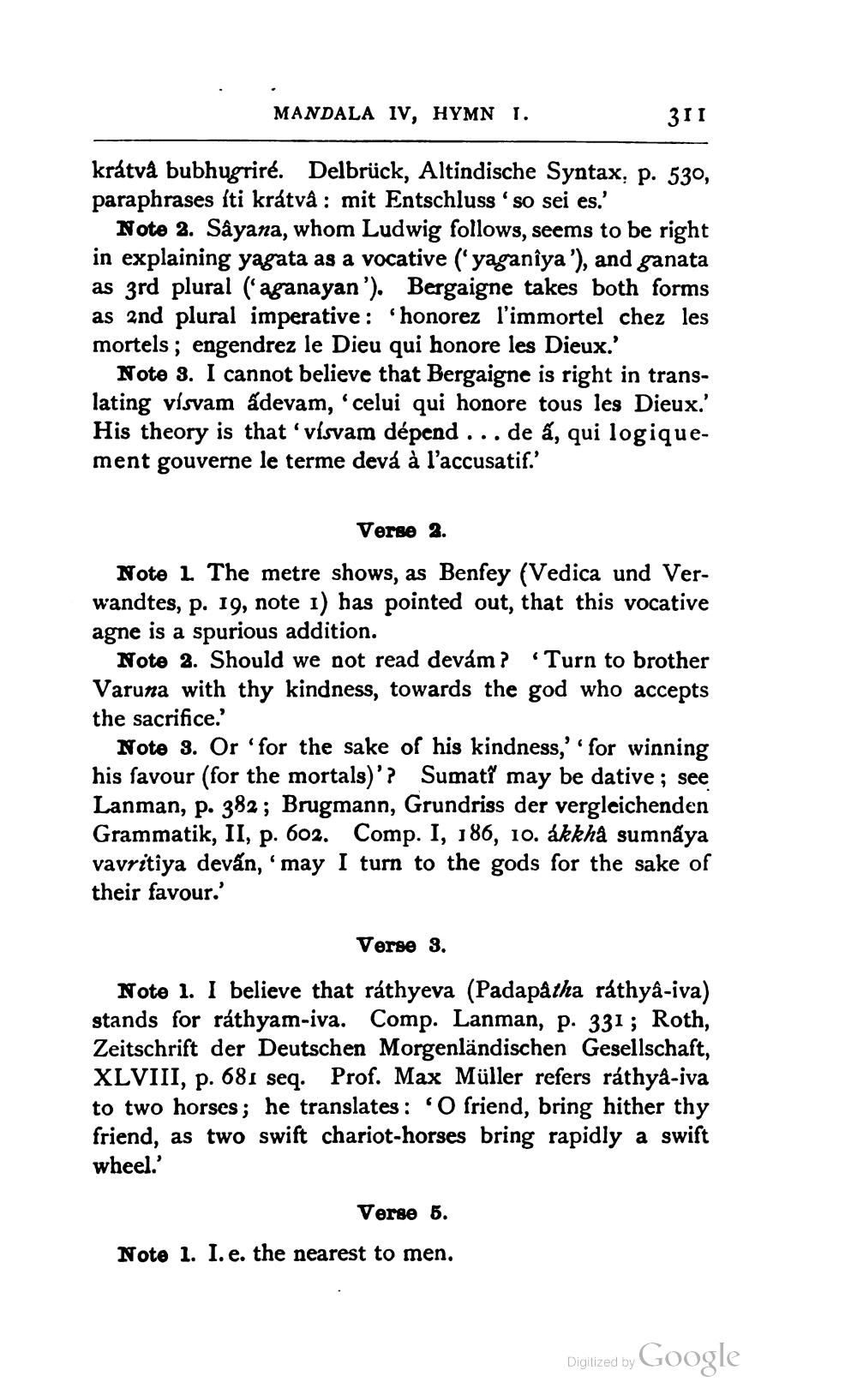________________
MANDALA IV, HYMN I.
311
krátvå bubhugriré. Delbrück, Altindische Syntax, p. 530, paraphrases íti krátvâ: mit Entschluss 'so sei es.'
Note 2. Sâyana, whom Ludwig follows, seems to be right in explaining yagata as a vocative ('yaganîya'), and ganata as 3rd plural ('aganayan'). Bergaigne takes both forms as 2nd plural imperative: 'honorez l'immortel chez les mortels; engendrez le Dieu qui honore les Dieux.'
Note 3. I cannot believe that Bergaigne is right in translating vísvam ádevam, 'celui qui honore tous les Dieux.' His theory is that 'vísvam dépend... de á, qui logiquement gouverne le terme devá à l'accusatif.'
Verse 2.
Note 1 The metre shows, as Benfey (Vedica und Verwandtes, p. 19, note 1) has pointed out, that this vocative is a spurious addition.
agne
Note 2. Should we not read devám? 'Turn to brother Varuna with thy kindness, towards the god who accepts the sacrifice.'
Note 3. Or 'for the sake of his kindness,' 'for winning his favour (for the mortals)'? Sumatî may be dative; see Lanman, p. 382; Brugmann, Grundriss der vergleichenden Grammatik, II, p. 602. Comp. I, 186, 10. ákkhâ sumnấya vavritîya devấn, 'may I turn to the gods for the sake of their favour.'
Verse 3.
Note 1. I believe that ráthyeva (Padapâtka ráthyâ-iva) stands for ráthyam-iva. Comp. Lanman, p. 331; Roth, Zeitschrift der Deutschen Morgenländischen Gesellschaft, XLVIII, p. 681 seq. Prof. Max Müller refers ráthyâ-iva to two horses; he translates: 'O friend, bring hither thy friend, as two swift chariot-horses bring rapidly a swift wheel.'
Verse 5.
Note 1. I. e. the nearest to men.
Digitized by
Google




